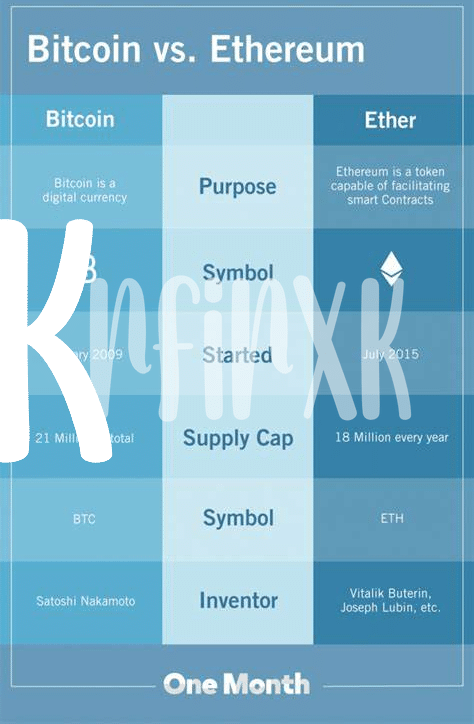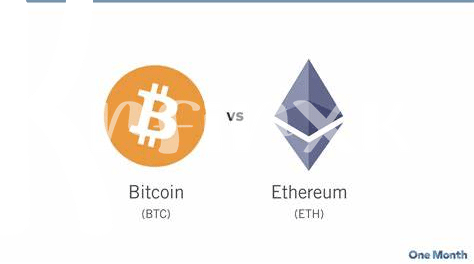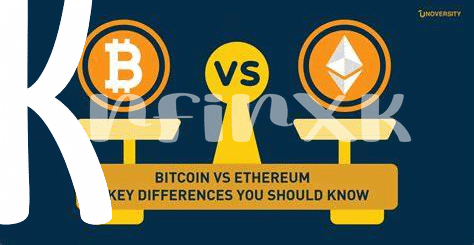🌟 What Is Ethereum and Why It Matters

Imagine stepping into a world where agreements could be made without the need for a middleman, providing a streamlined, trustworthy process. That’s where Ethereum shines as a standout star. Unlike traditional systems, Ethereum introduces a digital platform where applications run exactly as programmed without any downtime, fraud, control, or interference from third parties. At its heart are smart contracts, the backbone of Ethereum, offering a revolutionary way to conduct transactions and agreements. It’s not just about sending and receiving digital money; it’s a whole new level of interaction and automation. Ethereum matters because it opens up a realm of possibilities for creating applications that can transform industries, from finance to healthcare, making processes more efficient, secure, and transparent. Think of it as the foundation for a future where technology takes big leaps in solving complex issues, making the digital world a lot more functional and interconnected.
Here’s a simple way to see why Ethereum is such a big deal:
| Feature | Description |
|---|---|
| Decentralization | Runs on a network of computers worldwide, not controlled by any single entity. |
| Smart Contracts | Automated contracts that execute when certain conditions are met, without the need for intermediaries. |
| Flexibility | Hosts a wide range of applications, not just financial ones. |
This is just a glimpse into the innovative universe of Ethereum, inviting us to rethink what’s possible in the digital age.
📜 the Magic Behind Smart Contracts
Imagine a world where agreements and deals can be made without the need for a middleman, sealed trustfully in digital code. This is the realm of smart contracts, a game-changer introduced by Ethereum. These aren’t your ordinary contracts written on paper but are instead programmed as software that automatically executes when certain conditions are met. Think of it like a vending machine – you select a snack, pay, and the machine automatically delivers your choice. Smart contracts work similarly, but instead of snacks, they handle transactions, agreements, and operations in the digital world, making the process faster, cheaper, and more reliable. What’s truly magical is their ability to reduce errors and eliminate the need for trust in transactions, paving the way for a future where deals are transparent, secure, and efficient. For a deeper dive into the potential of blockchain technology beyond currency, explore https://wikicrypto.news/inflation-impact-bitcoin-and-gold-as-protective-investments, offering insights into how these innovations can be the cornerstone for a new digital era.
🔧 How Smart Contracts Work: a Simple Overview

Imagine you’re making a deal with a friend to buy their bike, but instead of just trusting each other to keep your ends of the bargain, you both decide to jot down your agreement on a super smart digital notepad. This notepad is pretty unique – it can automatically make sure that once you’ve paid your friend, the bike is definitely yours without either of you having to do anything more. That’s essentially what smart contracts on Ethereum are like. They’re like little bits of code living on the Ethereum blockchain, acting as digital agreements that automatically do something when certain conditions are met, like transferring money or registering a purchase. This process removes the need for a middleman, making transactions quicker, safer, and, in many cases, cheaper. It’s a bit like having a robot mediator that’s incredibly good at sticking to the rules of the game, ensuring everything goes smoothly according to the agreed deal.
💡 Examples of Smart Contracts in Action

Imagine a world where renting a house or buying a song online doesn’t need a bunch of paperwork or a middleman. That’s one of the smart contract’s magic acts. For example, when you rent an apartment, a smart contract can automatically ensure that once you pay your rent, the virtual key to the apartment is sent to your phone, allowing instant access. No waiting, no extra fees, and no risk of the key getting lost in the mail.
On a bigger scale, smart contracts can play a role in how businesses operate. Let’s say a clothing store has a deal with their supplier: once a new shipment of clothes passes quality check and is received, payment is automatically released. This makes the process smoother and faster for both parties. Moreover, wondering about what is the future of bitcoin and the blockchain, smart contracts stand out as a beacon of automation and efficiency that could reshape our conventional systems. From securing loans to tracking ship cargo across oceans without the headache of paperwork, smart contracts show not just the power of Ethereum but the potential for a more streamlined world.
🚀 the Big Benefits of Using Smart Contracts
When we peek into the world of smart contracts, it’s like unlocking a treasure chest of benefits. Imagine a world where agreements are not just words on paper but actions that happen automatically. This is what smart contracts offer – a trusty handshake between parties where what’s promised is delivered, without the need for a middleman. This not only speeds things up but also cuts down on costs, making it cheaper to do all kinds of things, from buying a house to sharing your favorite music. Moreover, the transparency and security baked into smart contracts mean that everyone can see the terms and trust that they will be carried out, reducing the risk of disputes. Plus, with the added layer of security from blockchain technology, it’s like having a super-powered lock keeping your agreement safe. Here’s a simple table highlighting the key benefits:
| Benefit | Description |
|---|---|
| Efficiency & Speed | Automates processes and reduces the time to complete transactions. |
| Lower Costs | Eliminates the need for intermediaries, reducing fees and related costs. |
| Transparency | Terms are visible and accessible to all involved parties, ensuring fairness. |
| Security | Blockchain technology provides a high level of encryption, protecting against fraud and unauthorized activities. |
| Trust | Smart contracts execute exactly as programmed, building trust through reliability and predictability. |
This fusion of benefits brings us closer than ever to a world where transactions and agreements are seamless, secure, and equitable for all involved.
🕵️♂️ Potential Challenges with Smart Contracts

While smart contracts on Ethereum sound like a game-changer, bringing about efficiency and trustless transactions, they aren’t without their hiccups. Think of them like complex digital agreements that live on the internet; they’re supposed to run smoothly without human intervention. Yet, they can sometimes face roadblocks. For instance, smart contracts are only as good as the code they’re written with. If there’s a glitch or error in the code, it could lead to unintended consequences, including lost funds. Then there’s the matter of security; these digital contracts are a hot target for hackers looking for loopholes to exploit. Moreover, the legal standing of smart contracts is still a bit hazy, raising questions about what happens when disputes arise. And just like any technology, there’s always a learning curve, meaning not everyone might find them easy to use right off the bat. Despite these challenges, understanding and addressing them is crucial for harnessing the full potential of this technology. For a closer look at the intricacies and potential pitfalls in the broader crypto world, such as understanding what are the risks of bitcoin and the blockchain, it’s important to dive deeper into the universe of digital currencies and blockchain technology.
